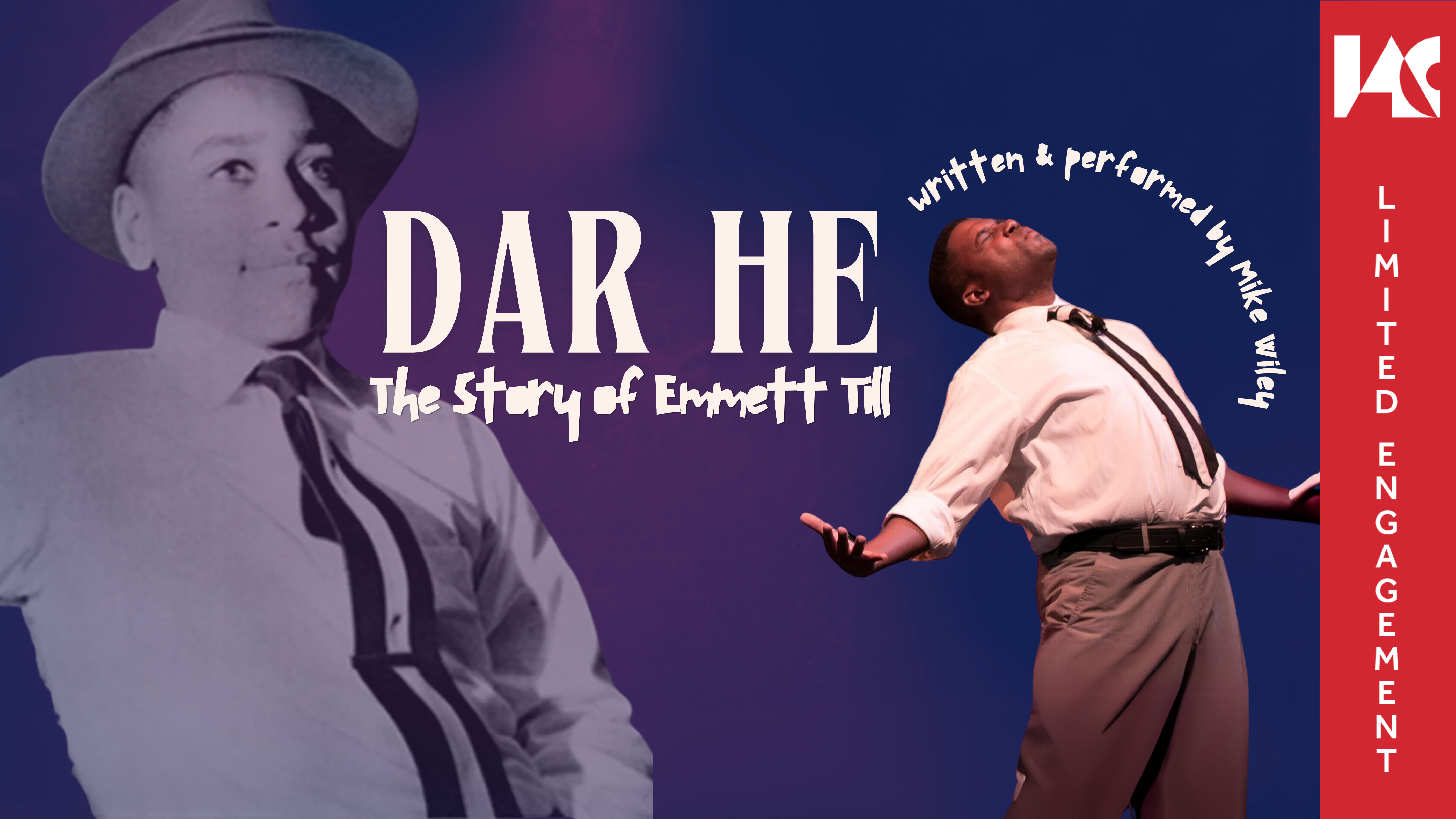Dar He: The Story of Emmett Till
Written & Performed by Mike Wiley
In 1955, a 14-year-old black Chicago youth traveled to the Mississippi Delta with country kinfolk and southern cooking on his mind. He walked off the train and into a world he could never understand — a world of thick color lines, of hard-held class systems and unspeakable taboos. Young Emmett crossed that line and stepped into his gruesome fate by whistling at a white woman. Through conversations with a Look magazine journalist, Emmett’s mother and others caught up in the events that led to Till’s devastating fate, this riveting play chronicles the murder, trial and unbelievable confessions of the men accused of Till’s murder.
 | “History tells us that when society is hurt or wounded, and in tumult or turmoil, the arts have rescued us. While a painting or a film or a song is no vaccine, nor peace treaty, they are however light in the darkness, laughter in the rain and music to press on to. And in that salve that soothes the world’s wounds, we find the elixir of hope. Hope that makes life worth living, worth fighting for. The arts give us hope, that united we are greater than the sum of our problems, greater than the sum of our differences. Art transcends social distancing, travel bans and quarantines. Art will document these dark days yes, but art will also lead us out of them.” – Mike Wiley |
Check Out the Trailer for the movie adaptation!
Tickets from $22-30
February 4, 2025 at 7:30PM
Clyde & Sandra Strickland Grand Stage
Content advisory: Recommended for 7th Grade +
Mike Wiley’s documentary theatre productions are dramatically rendered stories based on historical fact. The dramas are presented with intention that they help to shine light and open dialogue by sharing stories of individuals and events of human and civil rights struggle, strength, hope, failure and accomplishment. These stories are part of the American historical narrative. Occasional use of language or terminology accurate to an event’s period or setting may be viewed by some as offensive or inappropriate — but by avoiding such language, the historical truth of the portrayal becomes less authentic. Thank you for your understanding.





